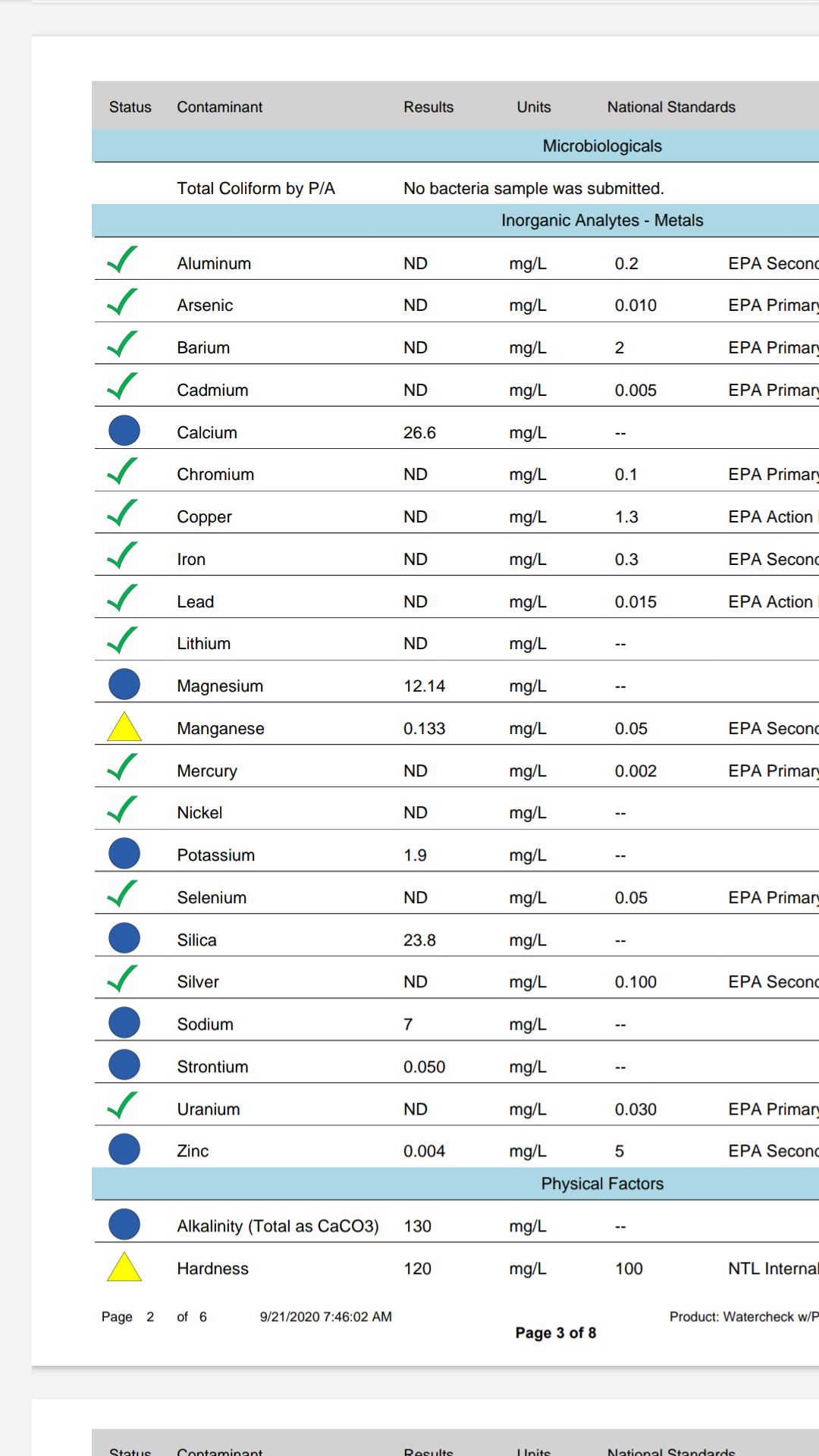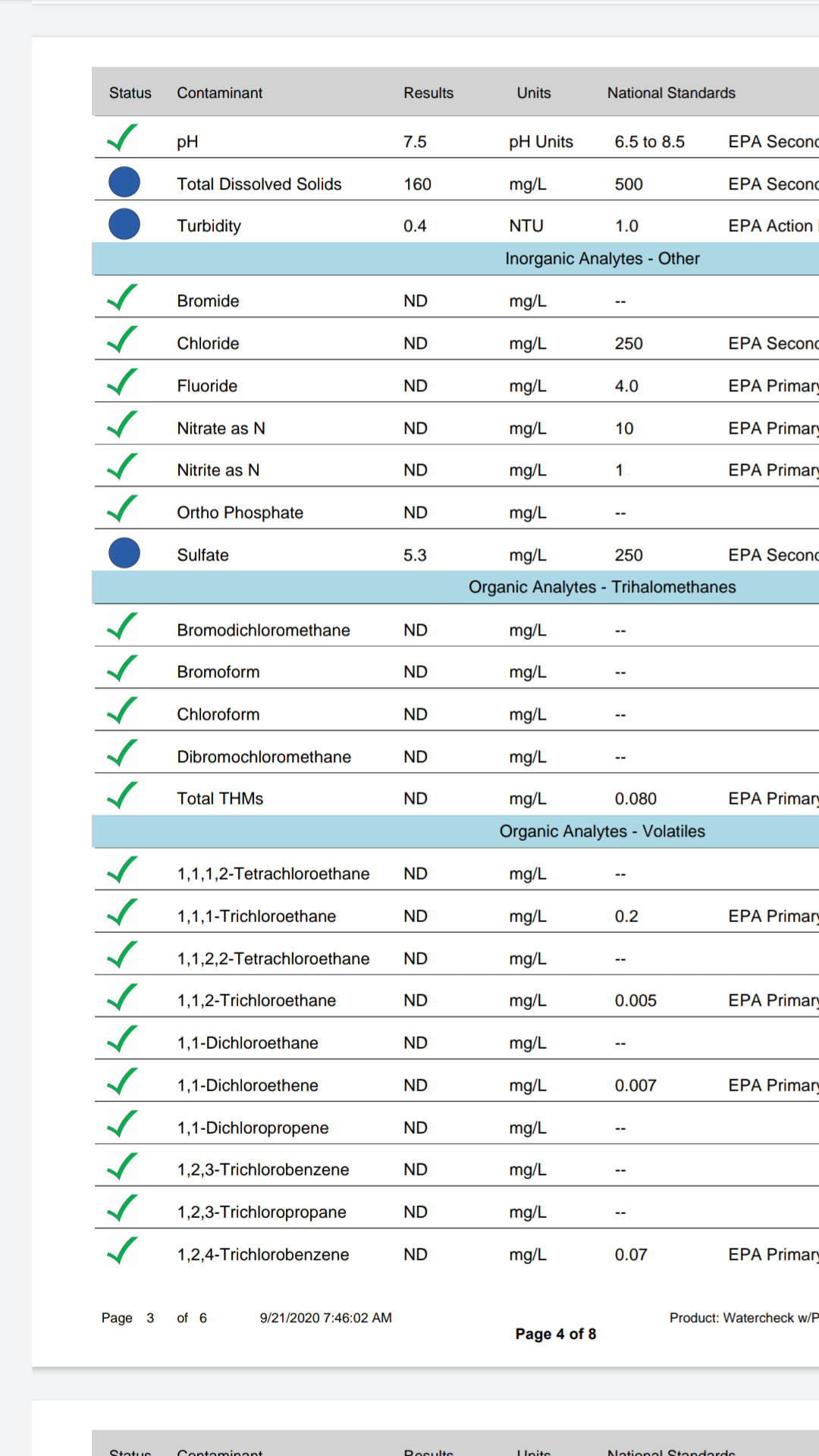Brewer dad
Well-Known Member
I'm hoping to diagnose a mineral bite I've experienced in two of my beers so far. I've searched here and other places, and have seen some suggestions such as infection, hop matter, carbonic acid, and others.
Both of these are from extract and in bottles.
The first beer is an old Rasputin clone(stout), with 2nd gen SO4 slurry starter. Blew my stopper off about 12 hours after pitching. First bottle was quite astringent, which I do think was hop matter related. That faded and was replaced by a sharp mineral finish. No roast, coffee, or chocolate flavors. This was bottled in November 2020 and I just finished the last bottle here a week ago(February 2021). The flavor profile stayed to the end, though I feel like the mineral flavor did diminish slightly on the last bottle.
Second is a weizenbock, made with wy3638 Bavarian wheat pitched straight from activated packet. Opened bottle on Wednesday night after 10 days carbing. Got some nice chocolate notes along with banana. Had another last night(Friday), and got nothing but that mineral finish I had in my above stout. Tried another and same thing. I poured the first pretty hard and got a good head, that taste to me seems accentuated by carbonation. Both beers are carved with 4oz corn sugar in 2 cups water(boiled).
I've brewed other beers before and between these, so I'm inclined to think it's not a water problem. We're on a well and had it tested so can provide results if needed. I consistently wash all my equipment and sanitize with star San. Given what's happened with the weizenbock I'm wondering if I didn't pick up infection while bottling. However at least from what I can find that's not a typical infection flavor.
Both of these are from extract and in bottles.
The first beer is an old Rasputin clone(stout), with 2nd gen SO4 slurry starter. Blew my stopper off about 12 hours after pitching. First bottle was quite astringent, which I do think was hop matter related. That faded and was replaced by a sharp mineral finish. No roast, coffee, or chocolate flavors. This was bottled in November 2020 and I just finished the last bottle here a week ago(February 2021). The flavor profile stayed to the end, though I feel like the mineral flavor did diminish slightly on the last bottle.
Second is a weizenbock, made with wy3638 Bavarian wheat pitched straight from activated packet. Opened bottle on Wednesday night after 10 days carbing. Got some nice chocolate notes along with banana. Had another last night(Friday), and got nothing but that mineral finish I had in my above stout. Tried another and same thing. I poured the first pretty hard and got a good head, that taste to me seems accentuated by carbonation. Both beers are carved with 4oz corn sugar in 2 cups water(boiled).
I've brewed other beers before and between these, so I'm inclined to think it's not a water problem. We're on a well and had it tested so can provide results if needed. I consistently wash all my equipment and sanitize with star San. Given what's happened with the weizenbock I'm wondering if I didn't pick up infection while bottling. However at least from what I can find that's not a typical infection flavor.














![Craft A Brew - Safale BE-256 Yeast - Fermentis - Belgian Ale Dry Yeast - For Belgian & Strong Ales - Ingredients for Home Brewing - Beer Making Supplies - [3 Pack]](https://m.media-amazon.com/images/I/51bcKEwQmWL._SL500_.jpg)












































